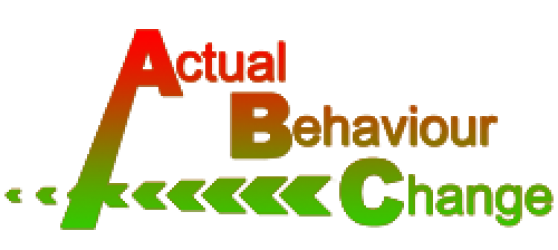The insights offered in these articles comes from Practice Theory. You’ll see that they are quite practical(!)
Why are Australians’ responses to COVID-19 and the recent bush fires so different?
Why people are not “behaving badly” and how to change it.
People are comparing how Australians are reacting to COVID-19 and the bushfires and scratching their heads. How can we have acted with such empathy in one situation yet with such selfishness in the other?
The answer is simple if you approach the question from a less individualistic perspective. Humans have a strong tendency to want to do tomorrow what we did yesterday. You likely repeated much of what you did yesterday, today, and will likely do so tomorrow. Theses routines and habits can be thought of as social practices; shared ways of living that define how particular cultures eat, sleep and have fun. Furthermore, not only do we tend to act routinely, we defend against threats that challenge our practices.
From this perspective we might think about the bushfire response in terms of our practices of rallying to help our neighbours, compared to the quite different practices of providing for your family.
One is shaped by our sense of national identity and practices around being generous, like the 80% of us that regularly give to charities. The other is shaped by our existing practices of consumption.
Consumption, shopping, is something that we all do regularly. It is enmeshed with other practices like being good providers and nurturers.
Now, if we think about how people reacted to the bushfires, we acted in accordance with our historical pre-existing practices of supporting fellow Aussies in need. This is an example of doing today what we did yesterday. Similarly, we are reacting to COVID-19 through our existing practices of provision and care for family. I don’t think many people would consider this a problem in and of itself. However, the context for this social practice has changed. Normally shopping is fine. But now it’s creating a problem because people, defending their existing practices of nurture and provision, are stocking up to ward of a potential threat to their capacity to be good practitioners.
But don’t they know what they’re doing is wrong? Well, yes, and no. There is a gap between what people know and what they do. We are not simply rational decision-making machines. Furthermore, we tend to rationalise our frowned upon behaviours. There is a grim determination on people’s faces in the supermarket queues. And of course, a couple, each with a large packet of toilet roles to buy individually, are getting one for someone else.
So, how do we address this problem?
First, stop judging people. They are acting in accordance with their pre-existing practices that have proven themselves over time. Week after week my experience of shopping not only worked but was like enjoyable if not satisfying for me and mine.
We need to work with existing practices to help transition them to better ones. The standout example of this in recent history was the water consumption campaign, Target 155. Not only did Victorians go down from 240 litres per person per day; we actually got down to 135 before bouncing back to 155. Even after the scheme was abandoned, and later made voluntary, our water consumption has remained around 155 litres per day. The week ending March 12 was 129.
Target 155 was successful because it was obviously needed given the drought. It was non-partisan. Up until it was cancelled by an incoming government, both major parties supported it. There was clear and consistent leadership coming from government and the water authorities. There were practical solutions for consumers. Water tanks, showerheads, showering with a bucket, changing how we garden and wash our driveways and cars, amongst other strategies, were rolled out. These changes are now locked into our water using practices. This is why we have remained around 155 litres per day per person.
To effectively deal with any crisis, like COVID-19, requires a similar response.
We need clear and consistent leadership. We need effective strategies for managing the crisis. Don’t expect people to do the “right thing” when by definition, shopping for you family is the right thing. We do need to think about the practices of shopping and health and engage with these in easy to do ways. For example, my local medical clinic has large signage saying do not enter unless you sanitise your hands right next to a sanitiser dispenser at the front door. We need to consider the individual practices that people are locked into and find ways to modify them rather than treat people as idiots or blame them for failing to act against what they know, through experience, works.
27/8/2019 In the Guardian on banning bins at schools
30/8/2019 Yahoo News on why banning single use plastic bags is not a silver bullet
23/10/2019Yahoo News on where addressing where plastic bans is headed
28/12/2023 ABC Radio National Evenings presented by Jess McGuire on the problem of individualistic consumer strategies for dealing with plastic bags. (The interview starts at 1:32:00 and goes to 1:46:00)
